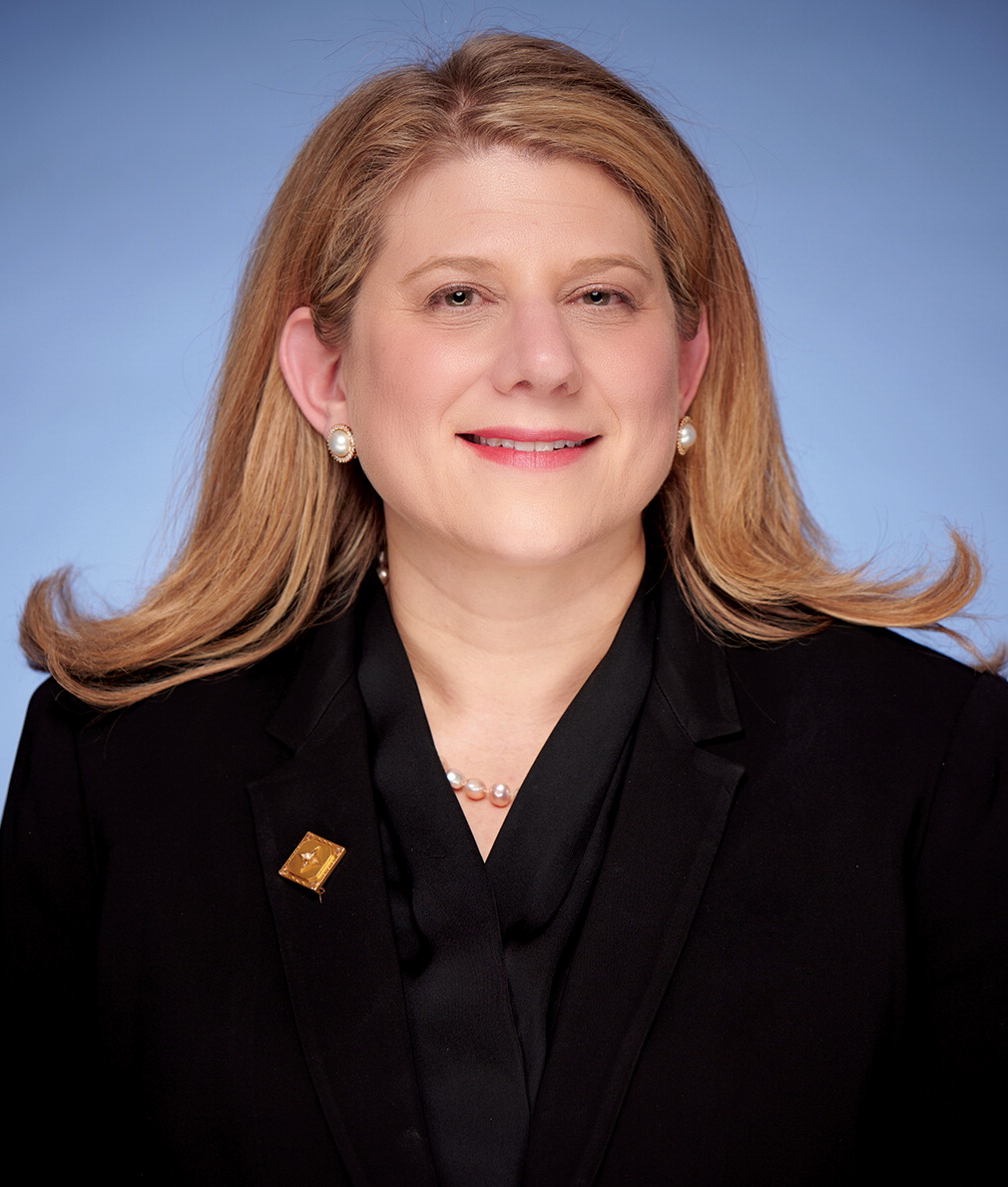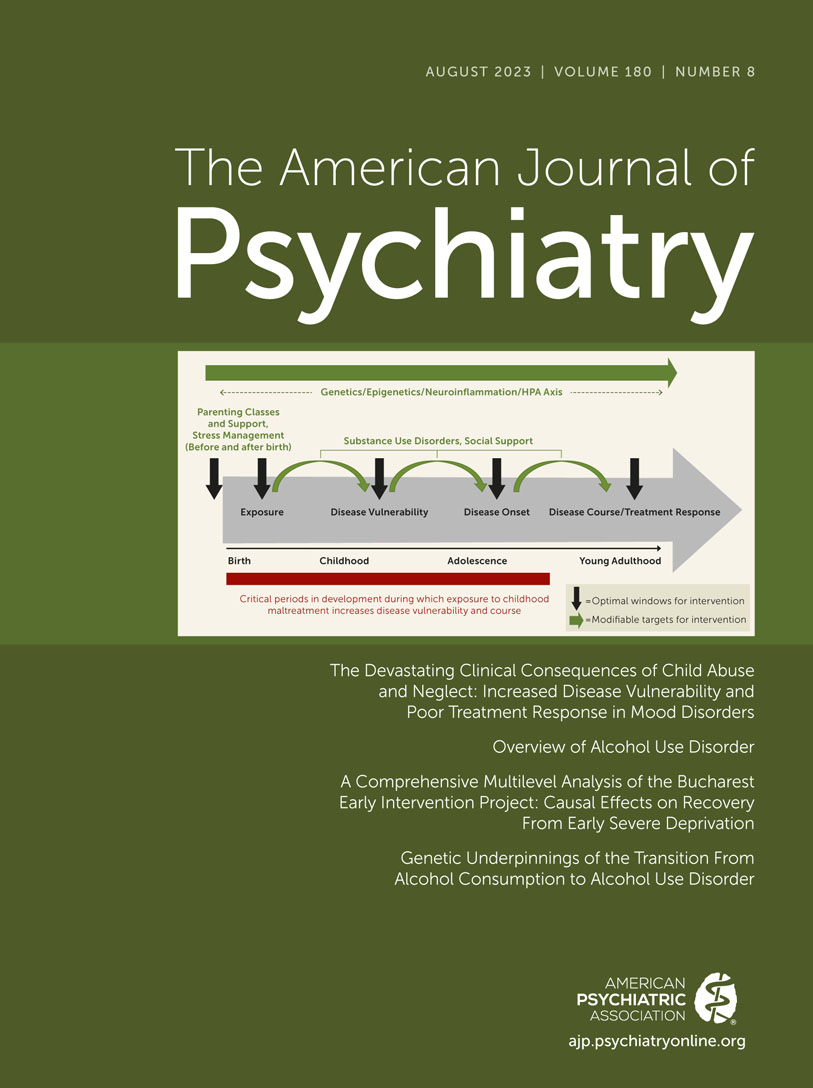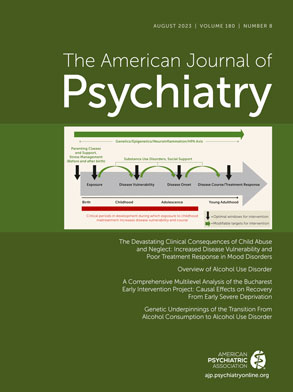Thank you, Charles, for your gracious introduction, for your leadership in APA Ethics and in Forensic Psychiatry, and most of all, for nearly two decades of collegiality and friendship. Thank you, Saul, for your partnership these past two years and your stewardship of APA as CEO and Medical Director over the past decade. And thank you Eric and the entire Scientific Program Committee for your leadership in bringing us all together for the 2023 APA Annual Meeting. Isn’t it great to be in San Francisco? Welcome back!
The last time we were together here in San Francisco, back in 2019, we had no idea that a global pandemic was just around the corner, bringing with it the most disruptive—and defining—event of a century. And now, as we come back together, we have just turned the page on the COVID-19 pandemic with the official end of the public health emergency just over one week ago. But as the viral contagion of the COVID-19 pandemic subsides, we find ourselves amidst a second pandemic, a mental health pandemic. Americans are experiencing high rates of loneliness, anxiety, and depression, and we are losing approximately 150,000 Americans to suicide and opiate overdose each year. The challenges before us are great and we must rise to the call of meeting society’s unprecedented need for treatment for mental health and substance use disorders. We are at a unique moment to do this work as—for the first time in our lifetimes—the importance of mental health to our overall health and wellbeing is front and center on the national—and international—stage.
When I addressed you one year ago in New Orleans, I promised that at this pivotal moment APA would lead psychiatry in advancing our vision of a society that has available, accessible, quality psychiatric diagnosis and treatment, and in New Orleans presented a broad vision for how we might begin this work through public engagement and education, advocacy on wide-ranging issues including our workforce, patient safety, parity and reimbursement, and by creating a strategic roadmap for the future of APA and psychiatry.
Today, I am pleased to report that we are on our way to achieving our vision! Let me share some highlights. First, we have had an extraordinary year in federal and state advocacy. Spearheaded by our policy and government relations teams, APA secured key victories on parity enforcement, telehealth flexibility, funding and support for collaborative care, and a 5-year reauthorization of the SAMSHA minority fellowship program to foster diversity in the APA and psychiatric workforce, all of this in the 2022 year-end omnibus bill. Other key initiatives this year included securing an additional 100 graduate medical education slots per year in psychiatry and its subspecialties. On the state level, APA continues critical partnerships with our district branches and members to champion patient safety, including by limiting those who prescribe psychiatric medications to mental health professionals with the requisite knowledge, skill, experience, and supervision to competently and safely provide that care. Our advocacy success would not be possible without the collaboration of APA staff and members. Thank you for all the work that you do to support our profession and those who we serve.
A second area in which member–administration collaboration has led to great success is in our communications and public education. Countless members have worked alongside our stellar communications team to provide reliable and up to date information about mental illness in social and digital media, the press, radio, and television. Thank you to all the members who have volunteered their time and to the communications team for always helping us individually and collectively put our best voices forward. One of the most important communications initiatives this year was a focused effort to reach communities that have been historically excluded.
APA is making long overdue strides in this area, including the launch of Spanish-language press releases and
LaSaludMental.org, APA’s bilingual Spanish/English website containing evidence-based, culturally informed resources designed and developed by APA member psychiatrists specifically for Hispanic persons in the United States. APA will continue to build on the success of this initiative with expanded outreach and educational efforts for members of other racial, ethnic, and cultural communities. The Board of Trustees and the administration together have also continued our commitment to advancing diversity, equity, inclusion, and belonging in APA itself through accountability to the recommendations of the Structural Racism Task Force by collecting data, monitoring progress, and promoting transparency with the posting of an ongoing report card on the APA website.
This year, we also made great strides in advancing the leading edge of psychiatry. This work was no small task. Many of us in this room, myself included, became psychiatrists when we still used paper charts and worked individually with patients in private offices. Now, a majority of U.S. physicians are employed and increasingly practice in teams of care. Psychiatry and psychiatrists must be prepared for continued practice shifts in mental health care delivery and, as we see now with demand for psychiatric care outpacing availability, we must act now.
Specifically, today, psychiatrists make up just 6% of the mental health workforce. Even with increases in training slots, it will not be enough to rise to the challenge of providing care to every American who needs it. We cannot make meaningful progress for our profession or our patients alone. Instead, we will need to innovate and work in teams of care to expand the reach of our workforce. This necessity inspired the Workgroup on a Roadmap for the Future, my presidential initiative. At its core is the pivotal question of how psychiatry and APA can continue to position ourselves at the forefront of mental health research, care, and delivery.
In partnership between the Board of Trustees and the Workgroup for the Future of Psychiatry, APA now has a strategic plan unanimously adopted by the Board, and currently being implemented by the APA administration, to meet goals now and into the future. This roadmap has the potential to position psychiatry and APA as the research, thought, and practice leaders in mental health for generations to come.
Chaired by Dr. Bob Trestman, and supported by Kristin Kroeger, Chief, and Agathe Farrage, Senior Manager, in the Division of Policy, Programs, and Partnerships, the roadmap charts an ambitious plan. The strategy includes leveraging and advancing DSM, growing the PsychPro registry, investing in clinical practice guidelines to set the evidence-based standard of practice among mental health professionals of different disciplines, developing quality measures to assess and improve care, and preparing psychiatrists for future practice challenges. This work will support and advance APA’s advocacy to establish the necessary foundation to structure, fund, and advance psychiatric care. I encourage you to attend the special presidential sessions on the roadmap this meeting to learn more and contribute to innovative solutions for the future so that every American has access to affordable, high-quality, evidence-based care at the right place, at the right time, and with clinicians and a care team with the training and experience to safely and effectively deliver that care. That is our vision, and we will keep working until we achieve it. To members of the workgroup, and the APA administration, we are all in your debt, and would not be positioned for this success without your exceptional vision and tireless efforts to imagine, reimagine, refine, and hone the road map for our future.
In my year as president, I have witnessed first-hand the impact our profession can have to improve mental health and how APA’s partnership with other mental health associations can fuel progress on the national and global stages. With the roadmap for the future, our voice and expertise has led to collaborations with global colleagues on team-based models of care, and also provided ethical and practice leadership for a world in sociopolitical flux. One example of this impact is our work with psychiatric leaders from around the world in supporting Ukraine. In ongoing meetings with Ukrainian and other global psychiatric leaders over the course of this year, a broad collegiality and commitment has grown not only to assist our Ukrainian colleagues but to continue to foster our relationships in the interest of promoting global mental health.
As my presidential year draws to a close, I am heartened by the passion and dedication I have witnessed at every level of our membership and administration to realize our vision. And so, I am honored to preside over this year’s APA annual meeting, where—over the next 5 days—innovation, collaboration, and motivation will guide our learning, advance our research and practice, spark our creativity, and fuel our imaginations about the possibilities for the future of psychiatry. I know that each of you will be inspired to continue the work ahead on behalf of our patients and our profession and to never waver in our pursuit of a mentally healthy nation and world.
Thank you for your trust and confidence in giving me this opportunity to lead our great profession to an even greater future and my deepest gratitude to the extraordinary administration and staff of the APA who commit their lives’ work and passion to advancing psychiatry and the mental health of those we serve. To the APA Board of Trustees, thank you for your partnership in this ambitious endeavor. To the APA Ethics Committee and staff in the Office of General Counsel, thank you for never letting us stray from the north star of doing what is right over what might seem expedient. To the countless colleagues and friends who have supported this journey, thank you for lending your shoulders to lean on and stand on, and to my family, I would not be here without your love, support, and patience.
And finally, Petros, thank you for your good counsel and friendship this past year. I know the APA is in good hands as you continue our important work this coming year.
Thank you.


